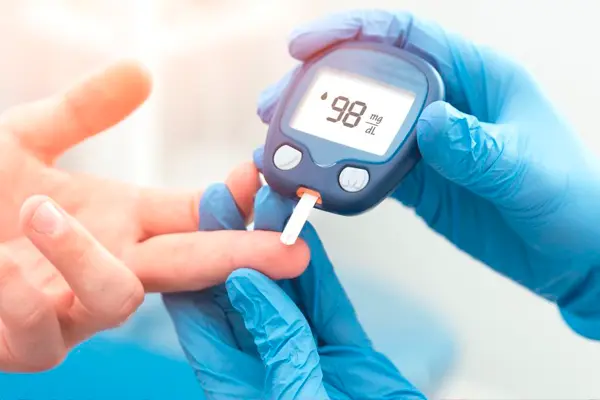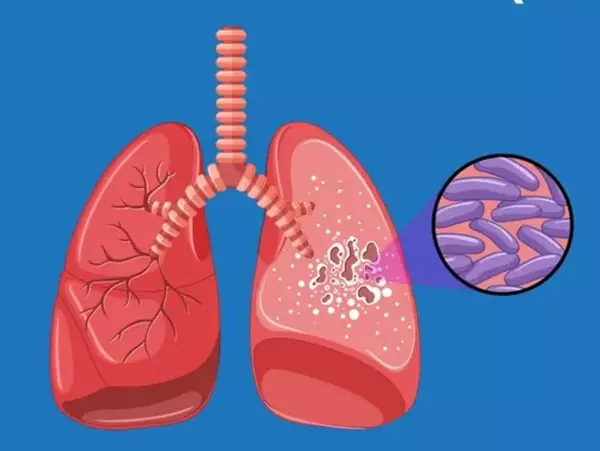Type 2 diabetes genetic

If you tested your DNA with a personal genomics service like 23andMe, AncestryDNA, FamilyTreeDNA, MyHeritage or another testing company, you can learn more about your risk factors for hundreds of diseases. By clicking the button above ⬆️, you can upload your raw DNA data file and receive a personalized 250-page health report with research links that is the most comprehensive.
Type 2 diabetes is the most prevalent and impactful subtype of diabetes worldwide, affecting around 150 million people with a projected increase of 40% by 2020. The condition already consumes up to ten percent of health budgets in many countries. Though extensively studied, understanding the underlying causes remains incomplete compared to type 1 diabetes where it is known that autoimmune destruction destroys insulin-secreting pancreatic beta-cells. Type-2-diabetes relates strongly to obesity and clustering within individuals or families for hypertension, dyslipidemia along with macrovascular disease suggests low sensitivity towards peripheral actions (insulin resistance) plays an essential role pathogenesis development onset varies widely due complexities from individual heterogeneity effects of hyperglycemia on intermediate traits being measured making progress challenging at times thus references drastic efforts necessary for elucidation crucial intermediary metabolic steps full-blown developmental stages related solely toward indicating compensatory capacity reduction prognosis closely tied too how good treatment therapies work over extended periods upon these patients representing formidable challenges ahead as we gain greater insight into this malady's mechanisms
Characterized by elevated levels of blood glucose, also known as blood sugar, Type 2 diabetes is a condition in which the body fails to efficiently use and produce insulin. Insulin produced within the pancreas controls glucose regulation in cells; it manages how much of this type of sugar gets transferred from the bloodstream into energy-producing cells. Upon high concentrations (e.g., post-meals), insulin secretion ramps up to transport excess glucose that brings down its levels present in circulation.
Insulin resistance is typically a precursor to type 2 diabetes, whereby the body's cells become less receptive to insulin. As this condition progresses, higher quantities of insulin are required in order for blood glucose levels to remain stable. In response, beta cells within the pancreas produce more and more insulin until they eventually lose their ability to adjust according to changes in blood glucose levels altogether – leading ultimately towards an inability by the body at large such as reduction incapacity It should be noted that most individuals experience some level of natural age-related decline regarding insulin sensitivity; however unhealthy lifestyle habits (such as lack of physical activity or excessive weight gain) exacerbate it significantly - greatly increasing one's chances of developing type 2 diabetes over time.
Follow the link of the selected polymorphism to read a brief description of how the selected polymorphism affects Type 2 diabetes and see a list of existing studies.
SNP polymorphisms related to the topic Type 2 diabetes:
| rs1799999 | Widespread amino acid polymorphism is associated with insulin resistance and insulin hypersecretion. |
| rs7923837 | Variations in the HHEX gene are associated with an increased risk of developing type 2 diabetes, affects acute glucose-stimulated insulin release. |
| rs7903146 | This is one of two SNPs in the TCF7L2 gene that have been reported to be strongly associated with type 2 diabetes, the other being rs4506565. They have approximately equal power to assess the risk of developing type 2 diabetes , and the results of one test correlate with the other in 92% of cases. Associated with reduced insulin secretion, as measured by the acute response to insulin and increased rate of glucose production in the liver. |
| rs13266634 | The zinc transporter gene SLC30A8 polymorphism is associated with type 2 diabetes. |
| rs7901695 | The TCF7L2 gene polymorphism confers an increased risk of early impaired glucose metabolism, impaired insulin secretion induced by glucagon-like peptide-1. |
| rs7754840 | The single nucleotide polymorphism rs7754840 of CDKAL1 is associated with impaired insulin secretion and proinsulin conversion. |
| rs10229583 | The rs10229583 polymorphism near the paired PAX4 gene is associated with gestational diabetes mellitus in women. |
| rs10811661 | The polymorphism is associated with impaired proinsulin conversion and redisposition to type 2 diabetes. |
| rs1387153 | The MTNR1B variant is associated with elevated fasting plasma glucose levels and risk of type 2 diabetes. |
| rs10886471 | The GRK5 variant is associated with the efficacy of repaglinide in patients with type 2 diabetes mellitus. |
| rs5219 | The E23K variant of the Kir6.2 gene is associated with impaired serum insulin response and an increased risk of developing type 2 diabetes. |
| rs9939609 | The common variant rs9939609 of the FTO gene, associated with fat mass and obesity, is associated with fat cell lipolysis as well as early onset of extreme obesity. Studies show that carriers of the risk allele A demonstrate significantly greater weight loss on a fat-restricted diet than non-carriers. |
| rs11708067 | Risk alleles near ADCY5 increase plasma glucose levels at birth and in early childhood. |
| rs3745367 | RETN resistin polymorphism is associated with obesity and increases susceptibility to type 2 diabetes mellitus. |
| rs12255372 | Polymorphisms in the transcription factor 7-like 2 (TCF7L2) gene are associated with a significant increase in the risk of type 2 diabetes. |
| rs4812829 | Polymorphisms have demonstrated a strong association with increased susceptibility to type 2 diabetes. |
| rs1801282 | Peroxisome proliferator-activated receptor gamma gene variation on the progression of type 2 diabetes and obesity. Also higher risk of cardiovascular disease with a diet high in saturated fat. |
| rs8050136 | Obesity-related heterogeneity in models of predisposition to type 2 diabetes. |
| rs4402960 | Locus of risk for developing type 2 diabetes as well as increased risk for gestational diabetes. |
| rs1111875 | HHEX gene polymorphism is associated with impaired proinsulin conversion and increased risk of developing type 2 diabetes. |
| rs2295490 | Growing role of TRIB3 as a gene affecting human insulin resistance on glucose homeostasis by altering the interaction between insulin sensitivity and secretion. |
| rs5015480 | Genetic variants associated with type 2 diabetes found in recent whole-genome association studies are also associated with gestational diabetes mellitus. |
| rs2237892 | Genetic variability in KCNQ1 is associated with fasting glucose levels and beta-cell function. |
| rs4607103 | Genetic predisposition to long-term non-diabetic disorders of glucose homeostasis. |
| rs4712523 | CDKAL1 deletion affects high-fat diet-induced fat accumulation and glucose-stimulated insulin secretion, suggesting a link to diabetes. |
| rs11868035 | Causes increased plasma free fatty acids, predisposing to early cognitive impairment in type 2 diabetes mellitus. |
| rs2297508 | Association of sterol regulatory element binding protein-1c gene polymorphism with type 2 diabetes mellitus, insulin resistance and blood lipid levels. |
| rs7961581 | Associated with type 2 diabetes, linked to insulin resistance in offspring of patients with type 2 diabetes. |
| rs741301 | A variant intron 13 of the ELMO1 gene is associated with diabetic nephropathy. |
| rs864745 | A single nucleotide polymorphism in the JAZF1 gene is nominally associated with type 2 diabetes. |
| rs7578597 | A novel type 2 diabetes risk allele at the THADA locus. |
| rs10946398 | A new risk locus for the development of type 2 diabetes. |
| rs7756992 | A new risk locus for the development of type 2 diabetes. |
| rs1470579 | A new risk locus for the development of type 2 diabetes. |
| rs4506565 | A common variant of the TCF7L2 gene is closely associated with type 2 diabetes mellitus. |
| rs2237897 | A common variant in the KCNQ1 gene cause an increased risk of developing type 2 diabetes and contribute to the diabetes epidemic. |
| rs2283228 | A common variant in the KCNQ1 gene cause an increased risk of developing type 2 diabetes and contribute to the diabetes epidemic. |
| rs9465871 | A common variant in the CDKAL1 gene is associated with type 2 diabetes and impaired fasting glucose levels. |
| rs12970134 | A common obesity variant near the MC4R gene is associated with higher intake of total energy and dietary fat, weight change, insulin resistance and risk of type 2 diabetes. |
| rs5215 | A common genetic variant with moderate effect of predisposition to type 2 diabetes and obesity. |
| rs4430796 | A common genetic risk variant for type 2 diabetes and prostate cancer. |
| rs391300 | 1.86 times higher risk of developing gestational diabetes. |
| rs9300039 | |
| rs17797882 | |
| rs4655595 | |
| rs1423096 | |
| rs6930576 | |
| rs2106294 | |
| rs3792615 | |
| rs9472138 | |
| rs649891 | |
| rs10440833 | |
| rs6769511 | |
| rs6712932 | |
| rs10461617 | |
| rs472265 | |
| rs6426514 | |
| rs7636 | |
| rs7178572 | |
| rs10965250 | |
| rs7041847 | |
| rs9552911 | |
| rs4527850 | |
| rs7305618 | |
| rs16861329 | |
| rs7403531 | |
| rs6815464 | |
| rs896854 | |
| rs11165354 | |
| rs17053082 | |
| rs11642841 | |
| rs17584499 | |
| rs8090011 | |
| rs7560163 | |
| rs4457053 | |
| rs791595 | |
| rs17036101 | |
| rs4760790 | |
| rs7172432 | |
| rs515071 | |
| rs3802177 | |
| rs3923113 | |
| rs1861612 | |
| rs2383208 | |
| rs11634397 | |
| rs10906115 | |
| rs7630877 | |
| rs8042680 | |
| rs231362 | |
| rs163184 | |
| rs243021 | |
| rs10814916 | |
| rs7578326 | |
| rs2028299 | |
| rs9470794 | |
| rs972283 | |
| rs849134 | |
| rs1531343 | |
| rs7593730 | |
| rs831571 | |
| rs3786897 | |
| rs1048886 | |
| rs642858 | |
| rs6718526 | |
| rs358806 | |
| rs7659604 | |
| rs9326506 | |
| rs12304921 | |
| rs1495377 | |
| rs2930291 | |
| rs2903265 | |
| rs2236513 | |
| rs6502618 | |
| rs1889018 | |
| rs2289116 | |
| rs997509 | |
| rs7018475 | |
About The Author
Li DaliLi Dali, a National Foundation for Outstanding Youth Fund recipient, is a researcher at the School of Life Sciences in East China Normal University. He earned his PhD in genetics from Hunan Normal University in 2007 and conducted collaborative research at Texas A&M University during his doctoral studies. Li Dali and his team have optimized and innovated gene editing technology, leading to the establishment of a world-class system for constructing gene editing disease models.


